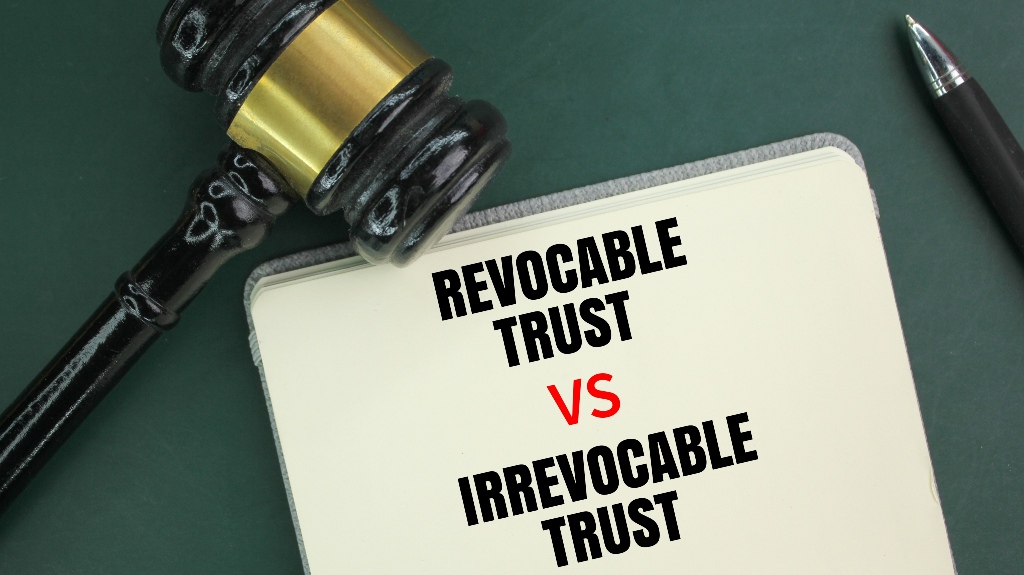
Trusts are powerful estate planning tools that help individuals manage assets, avoid probate, and protect beneficiaries. In Oklahoma, the two most common types of trusts are revocable and irrevocable. While they may sound similar, they serve distinct legal and financial purposes. Understanding the difference is key to choosing the right trust for your estate plan.
The experienced estate planning lawyers at Brune Law Firm will help you pick the right type of trust for your estate plan. Choosing the rights tool protects your assets and gives you peace of mind.
What Is a Trust?
A trust is a legal arrangement where one party (the grantor) transfers assets to another party (the trustee) to manage for the benefit of designated beneficiaries. Trusts can hold real estate, bank accounts, investments, and other property. They are often used to:
- Avoid probate
- Reduce estate taxes
- Protect assets from creditors
- Provide for minor children or individuals with special needs
Oklahoma recognizes both revocable and irrevocable trusts under Title 60 of the Oklahoma Statutes.
What Is a Revocable Trust?
A revocable trust, also known as a living trust, can be altered, amended, or revoked by the grantor at any time during their lifetime. This flexibility makes it a popular choice for individuals who want to retain control over their assets while planning for incapacity or death.
Key Features of Revocable Trusts in Oklahoma:
- Control: The grantor typically serves as trustee and beneficiary during their lifetime.
- Privacy: Assets in a revocable trust avoid probate, keeping estate matters out of public record.
- Flexibility: Terms can be changed as circumstances evolve.
- No Asset Protection: Because the grantor retains control, assets in a revocable trust are not shielded from creditors or lawsuits.
- Tax Treatment: The trust is disregarded for income tax purposes; the grantor reports income on their personal return.
Revocable trusts become irrevocable upon the grantor’s death, at which point the successor trustee takes over and distributes assets according to the trust terms.
What Is an Irrevocable Trust?
An irrevocable trust cannot be modified or revoked once it is executed, except under limited circumstances and with court approval. This permanence offers significant legal and financial advantages, especially for asset protection and tax planning.
Key Features of Irrevocable Trusts in Oklahoma:
- Asset Protection: Assets are removed from the grantor’s estate and shielded from creditors, lawsuits, and Medicaid spend-down requirements.
- Tax Benefits: May reduce estate and gift taxes, depending on the trust structure.
- Limited Control: The grantor relinquishes ownership and control of the assets.
- Fixed Terms: Changes require consent from beneficiaries or court intervention.
- Separate Tax Entity: The trust may file its own tax return and pay taxes on income retained within the trust.
Irrevocable trusts are commonly used for:
- Medicaid planning
- Life insurance trusts (ILITs)
- Charitable giving
- Special needs planning
- Business succession

Oklahoma-Specific Considerations
If you utilize an Oklahoma attorney, you can ensure you meet state-specific requirements such as, but not limited to:
- Trust Code: Oklahoma’s Uniform Trust Code governs trust creation, administration, and termination.
- Homestead laws: Transferring real estate into a trust may affect homestead protections—legal advice is recommended.
- Medicaid Look-Back: Transfers to irrevocable trusts may trigger a five-year look-back period for Medicaid eligibility.
Schedule a Meeting With an Oklahoma Estate Planning Lawyer
Revocable and irrevocable trusts offer distinct advantages depending on your estate planning needs. In Oklahoma, both types are recognized and widely used to protect assets, avoid probate, and provide for loved ones. Understanding the differences—and working with a qualified attorney—can help you build a trust that aligns with your goals and complies with state law.
Let the experienced lawyers at Brune Law Firm work with you on your probate questions and needs. Contact us today for a consultation.

